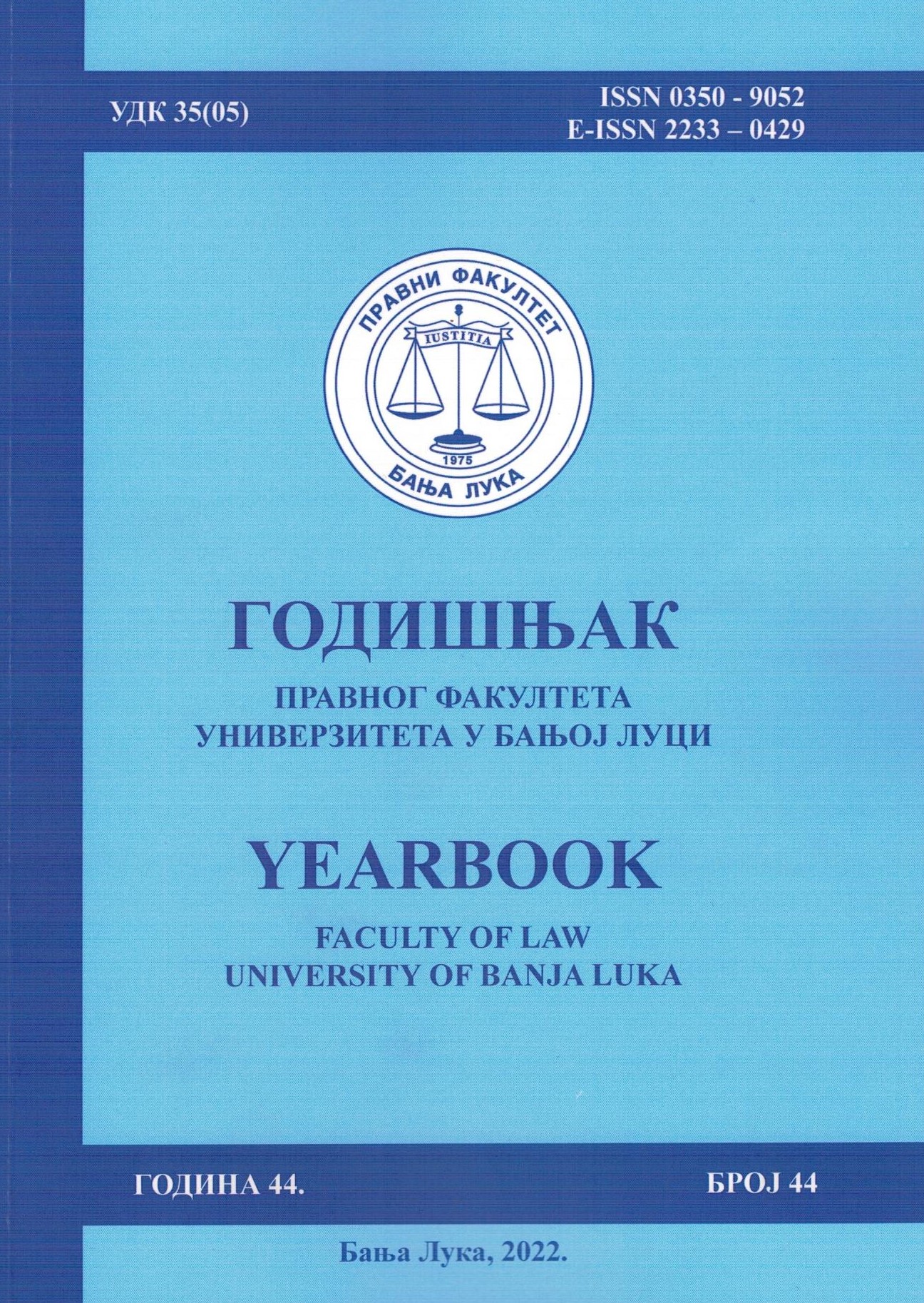COURT DECISIONS ON THIRD PARTY OBJECTIONS
Abstract
A third party who claims that he has a right that prevents enforcement, according to the rules of enforcement procedure, has the possibility of using legal means to protect his right. The most prominent legal remedy used by a third party is the objection of a third party. By declaring an objection before the executive court, a procedure for the protection of the threatened rights of a third party is initiated, and the objection itself is decided by the executive court. Decisions of the executive court regarding the objection of a third party can be decisions by which the objection of a third party is accepted, but also as decisions by which the objection of a third party is rejected or dismissed. Depending on the decision of the executive court, the third party is affected by certain legal consequences, and these same consequences can have their effect and influence the very course of the executive procedure, regarding which the third party has filed an objection. This paper will analyze the decisions that the executive court can make regarding the legal remedy - the objection of a third party, the consequences and changes that affect both the third party whose right is threatened and the parties in the enforcement procedure, but also what is the fate of the enforcement procedure , depending on the decision of the executive court. Also, an analysis of current judicial practice will be carried out, as well as a comparison of theoretical positions and judicial practice of the home state and countries in the surrounding area, adopted on the objection of a third party.

This work is licensed under a Creative Commons Attribution-NonCommercial-NoDerivatives 4.0 International License.



